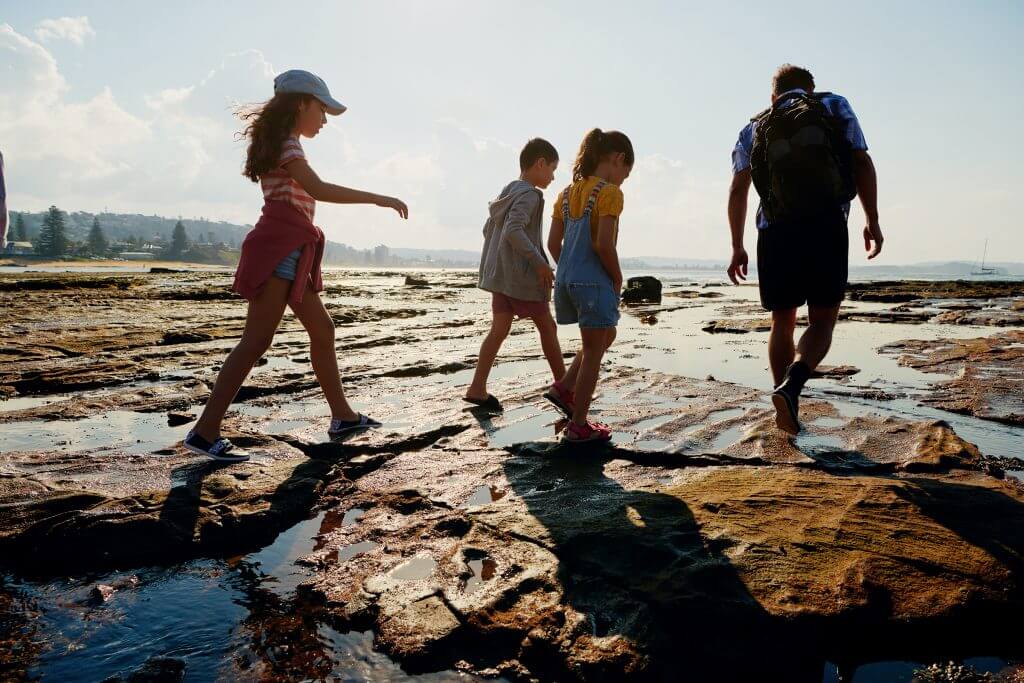
Since the earliest days of the Covid-19 pandemic, our Hotelier PULSE research reveals that the majority of Hoteliers expect domestic travel to be the strongest contributor to recovery.
NB: This is an article from GuestCentric
Despite ever-changing travel restrictions and cautious consumer behaviors relating to Health & Safety and travel bookings, this trend has not changed.
After a drop of 93% in April 2020 compared with the same month of the previous year, by July 2020, domestic tourism in Europe almost returned to the level of the previous year, according to research by eurostat. In July 2020, the same research reveals that nights spent by EU residents in tourist accommodation inside their own country were only 22% lower than in July 2019, while nights spent by non-residents were 64% less than the previous year.
Subscribe to our weekly newsletter and stay up to date
Does your hotel have a strategy in place to tap into the influx of local travelers? If you’re still finding your way, read on to find out how your hotel can leverage this prevailing trend.
7 Ways Hotels can Conquer the Domestic Travel Market
International travel has come to a standstill and domestic travel is currently the lifeline the industry is holding onto for the foreseeable future. Regardless of how successful the fight against Covid-19 may turn out to be, it’s likely that international travel will be offline for some time. If hotels are to survive, bookings and revenue will have to be sourced from the domestic market.
Below are 7 strategies your Hotel can implement to engage domestic travelers on the road to recovery:
1. Partner with local providers

Now is the time to revisit what your hotel can offer in collaboration with the local attractions and services. This will not only create added value to guests, but also promote your destination and help the local community.
Let’s say your hotel doesn’t have a SPA and there is one nearby. Your hotel can partner with the local SPA to create a package that includes not only the accommodation but also a massage and other services that your hotel might have available or from other partnerships. It’s a win win situation for not only your guests and the local community, but also your hotel.
Travellers continue to seek local experiences and they want to have a ‘holiday’ feeling. It’s important to guarantee this experience for guests who stay at your hotel. Through local partnerships, you can still differentiate your hotel brand in the market.
So instead of lowering your rates, get ready to create added-value packages that tie in with local attractions and services. Meals, SPA services, tours, workshops, anything that is available in your area and that your guests will value, makes sense for your hotel.
2. Offer ‘Home Office’ Packs to the Rising Remote Workforce

With a large percentage of the global workforce either strongly encouraged or forced to work remotely, Hotels can shape their offers around this phenomenon. Remember, many will be looking to escape from a tiny apartment or even a large house with many distractions such as children, pets, roommates, noise, and other distractions.
There are two ways your hotel can maximise rise of remote working. Your hotel could offer a room that’s converted into an office from 8:00 am to 6:00 pm. The other option is to offer a long stay package that allows workers to sleep and work in a different environment instead of being stuck at home. Professionals will certainly appreciate the change of scenery and access to amenities your hotel can offer.
People who can no longer access their office or don’t feel safe doing so need a quiet, clean place to work without distractions, and hotels are the perfect places to do so. This, allied to very low occupancy rates in most hotels during these times, is a great way to generate revenue.
3. Create Offers that adapt to Curfew Restrictions

If curfews have been imposed on your destination, make sure you adjust your check-in and check-out hours to match the requirements. This will help your guests comply with the region requirements and still travel.
For example, if there’s a weekend curfew, where people can only walk outside during the morning, your hotel can create an inside package for locals that includes an indoor programme.
A great example of this idealized and put in place is being done by a European 5-Star boutique city center hotel – Memmo Principe Real. This hotel created a package that includes dinner, to also take advantage of their F&B capabilities, and one free night stay. This boutique hotel offers a free night’s stay to guests who have dined at the hotel. How could anyone refuse?
4. Partner with Local Influencers

While being stuck at home, consumers have been spending more time than ever on social media and interacting actively with content creators. Trusted social media influencers continue to grow to be a reliable source of information and an effective, authentic way to communicate with your audience. The Edelman Trust Barometer Special Report: In Brands We Trust, revealed that 63% of 18-to-34-year-olds trust what an influencer says about a brand more than what the brand says about itself in advertising.
Partnering with local or national Influencers can provide hotel brands with quick and less-expensive content at a time when large-scale ad production may be difficult. This approach can also be very efficient with your target audience and lead to higher engagement rates.
Whether you partner with an influencer to assure your guests your healthy & safety procedures are in place, to show off your ‘home’ office rooms, or promote your hotel as ‘The Place’ to spend some relaxed days in these chaotic times, make sure their audience is a match for your brand.
5. Make Sure your Hotel Website speaks the same Language as your Guests

The website opening language for most hotel websites is english, the universal language. But with international travel on hold, hotels need to adapt to the language of the local market.
Right now if you want to target the domestic market and your hotel is not located in an English-speaking country, you should change the opening language to your country language. This way, the visitor not only saves one step, one-click less, but also feels your hotel is communicating with them and focused on their needs.
6. Review and update your Hotel Website Content

Your hotel’s success largely depends on the ability to adapt to the new reality and to stay relevant, visible and engaging as the situation evolves. Your hotel website needs to be a reflection of this, and as such updated with the latest information.
Visitors to your website should immediately understand which activities are available and what attractions can be visited around your hotel. If you have changed your cancellation policy to be more flexible, this should be clearly showcased to your guests.
It’s important that visitors also feel assured about the health and safety measures your hotel is taking during this time. Let’s say your hotel used to promote proximity to nightlife in the center of a very cosmopolitan city. This message is not only irrelevant, but could actually be harmful to your brand. Instead, you should adapt your messaging to reflect new selling points – such as empty beaches or local, socially-distanced walking guides.
Remember, your hotel’s website needs to reassure potential guests of your property’s current operational status, preventative measures, special offers, cancellation policies, and safe local experiences.
7. Create & Offer Gift Vouchers to Guests

Birthdays, Christmas, Anniversaries, expressing thanks, or lifting someone’s spirit are all-year-round reasons why people buy gifts. Gift vouchers are a win-win situation that can both instantly increase your hotel’s cash flow and give guests something to look forward to and enjoy in the future.
Gift vouchers can be used to sell night stays, package stays, any hotel services independently (such as dinners or spa treatments), or even a monetary value to spend on any of the above. But remember, gift vouchers can not only be used in the near future for locals only, but also for international travelers in the more distant future. Bear this in mind when defining the expiration date of each voucher.
While many people can’t or do not want to travel right now, that doesn’t mean they lost their appetite to experience new things and discover new places. Actually, it has the opposite effect: they want it now more than ever.
Conclusion
Domestic tourism is set to play a vital role in both your hotel’s recovery and in the rebuilding of economies. While large-scale travel will be one of the last facets of normal society to recover from the 2020 Coronavirus pandemic, domestic tourism is now king and will be the main source of revenue for hotels. In fact, a recent Revinate survey found that 73% of global respondents plan to travel within the next year, with 70% expecting to engage in domestic travel first.
Therefore, it’s crucial to align your hotel’s operation and its digital marketing strategy to the new travel climate and adapt it to your domestic market. The solution lies in being informed and using the right tools to empower your hotel to act the right way, at the right time, and targeting the right people.
Hotels can attract local and domestic guests by focusing on the kind of experiences that people are craving right now, following these actions to capitalize on existing demand.




